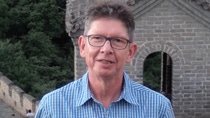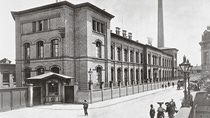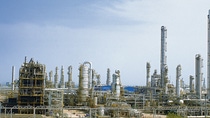Who we are
BASF in China

Chairman of the Board of Executive Directors of BASF SE
Today China is a country on the move and increasingly self-confident, both economically and politically. As the Chinese see it, it is in the process of regaining its rightful place among the great nations.
Many BASF employees experienced this development firsthand. At the end of 1885, 20 years after founding Badische Anilin- & Sodafabrik, a director by the name of Theodor Sproesser traveled to China. His job was to convince the Chinese of the benefits offered by our dyes. At the time, this was a very risky but ultimately successful endeavor. Almost everything has changed in China since then. BASF now achieves sales of around 5.5 billion euros and operates state-of-the-art factories in the People’s Republic of China, Hong Kong and Taiwan. We are the largest foreign investor in chemistry and cooperate closely with our local partners, especially Sinopec.
And now we have a book on China for the 150th anniversary of BASF. We owe this to more than the significance of the Chinese market. Other markets are also important and our business is even greater there, for example in the United States. But China offers an especially fascinating background for entrepreneurial daring and investments. BASF has operated here for 130 years. Especially the last 20 years led to an enormous acceleration of our growth. The dominating distribution of our products was supplemented by a network of competitive production sites and – just recently – by research institutions from what was basically a standing position.
This book traces that phase of our special entrepreneurial dynamics. This is possible in particular because most of the players, active and former aniliners along with many partners in economics and politics, were ready to share their impressions and experiences.
We are pleased that this led to a lively and vivid depiction of the numerous events.

The Author
Michael Grabicki studied German literature and political science in Hamburg and Göttingen. He completed an internship at a newspaper and then worked as a journalist at “Göttinger Tageblatt.” After holding various public relations positions at BASF, he was responsible for its Corporate Media Relations until the end of 2012. During this time, Michael Grabicki repeatedly visited Asia and supported BASF’s activities in China with public relations work.
The author lives in Ludwigshafen am Rhein. For his nonfiction debut, Michael Grabicki researched original documents from the archives of BASF and other companies and conducted numerous interviews with many of those who played a pivotal role in the history of BASF in China.
Header image
The cover picture shows an early dye label used by BASF on its synthetic indigo packaging at the beginning of the 20th century.



